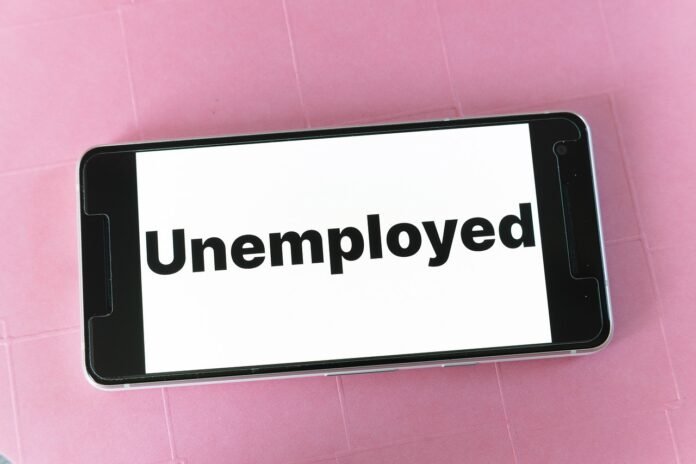Introduction
Many Texans search for a simple number—“How many months do I need?”—but Texas unemployment isn’t built around a fixed month count. Instead, the system looks at your wages across specific calendar quarters and compares them to formulas in state law.
Texas uses a base period, which is a 12-month window made up of the first four of the last five completed calendar quarters before you file. Those quarters are the three-month blocks that start in January, April, July, and October. This timing matters more than a raw total of months, because it decides which paychecks count when you apply.
To qualify financially, you need wages in more than one quarter of that base period and total base-period wages of at least 37 times your weekly benefit amount (WBA). There isn’t a rule like “work six straight months.” If your wages are spread across at least two quarters and meet the threshold, you can be eligible—even if you didn’t work every single month.
Because eligibility hinges on timing, two people with the same job length can get different outcomes. Three months that fall entirely within a single quarter may not be enough, while three months that straddle the end of one quarter and the start of the next could count for two quarters. That’s why checking which quarters your pay fell into is essential.
On top of the monetary rules, Texas also looks at why you’re unemployed and whether you’re available and actively searching for full-time work. When you do qualify and file, apply as soon as you become unemployed—the effective date starts on the Sunday of the week you apply, and you can’t be paid for weeks before that.
Bottom line: there’s no magic “months” number. Focus on quarters, your total base-period wages, and the separation/work-search rules. The sections below answer the most common variations of this question so you can quickly match your situation to Texas Workforce Commission standards and decide your next step with confidence.
1) Do I need six months of work to get unemployment in Texas?
There is no fixed month requirement in Texas. The state looks at a 12-month base period and asks whether you have wages in more than one quarter, plus total wages of at least 37× your WBA. That structure can make even less than six months sufficient if your pay fell across at least two different quarters and met the earnings test.
Think in quarters, not months. For example, late-March through early-April spans two quarters, while June–August sits inside one. If your wages are confined to a single quarter, you likely won’t meet the “more than one quarter” rule until the next quarter completes.
If your timeline is close, consider the calendar. Waiting a few weeks until a new quarter completes can pull earlier wages into your base period and change the outcome. When in doubt, file—Texas will apply the rules to the exact dates on your pay history.
2) How many quarters of wages are required for Texas unemployment?
You need wages in more than one of the four base-period quarters—practically, that means at least two quarters must show covered wages. This rule is separate from the total-wage requirement of 37× WBA. Both must be met to have a payable claim.
Because quarters are fixed three-month blocks, what matters is which quarter your pay landed in. Paychecks straddling the end of one quarter and start of the next can help you satisfy the two-quarter rule faster than paychecks bunched entirely within one quarter.
If you miss the two-quarter rule today, waiting until another quarter closes can make you eligible. Filing at the right time can be the difference between a denial and an approval on financial grounds.
3) What is the base period for Texas unemployment eligibility?
The base period is the first four of the last five completed calendar quarters before your claim. It’s a 12-month snapshot used to total your wages and calculate your WBA. The quarter immediately before you file usually doesn’t count, because it’s the fifth (the most recent) and is excluded from the standard base period.
Calendar quarters run Jan–Mar (Q1), Apr–Jun (Q2), Jul–Sep (Q3), and Oct–Dec (Q4). If you file in April, Texas would generally look at the prior January–December wages, not January–March of the same year. That timing catches some people off guard.
If a medically verified illness, injury, disability, or pregnancy kept you from working at least seven weeks in a quarter, Texas may allow an alternate base period using earlier wages—available only in specific medical situations.
4) How much must I earn to qualify for unemployment in Texas?
Your total base-period wages must be at least 37× your weekly benefit amount (WBA), and you must have wages in more than one quarter. Texas calculates your WBA by dividing the highest-earning quarter in your base period by 25, then rounding.
Texas also sets a minimum and maximum WBA each year; currently the range is often published in the $70s to the high-$500s per week, depending on your past wages. Meeting the dollar range isn’t enough—you still need the two-quarter rule and the 37× WBA total wages.
If you previously qualified and are filing again, you’ll generally need to have earned six times your new WBA since your last claim to be payable on a new one. This prevents back-to-back claims without new work in between.
5) Does part-time work count toward Texas unemployment eligibility?
Yes. Part-time wages count toward the base-period totals just like full-time wages. If you work part-time while requesting benefits, you must report hours and gross earnings for each week you request payment; those wages can reduce your benefit for that week.
Texas generally lets you earn up to about 25% of your WBA in a week without reducing your payment; above that, your weekly benefit is reduced, and if you earn more than 125% of your WBA, you won’t be paid for that week. Always report earnings in the week worked, not when paid.
Once you start full-time work (customary hours for your occupation), you are no longer eligible for benefits going forward, even if your first paycheck hasn’t arrived yet.
6) Can I qualify with only 3 months at a new job in Texas?
Maybe—this depends on timing and your prior wages. If your three months sit entirely inside one quarter and you have no wages in any other quarter, you likely won’t meet the “more than one quarter” rule yet. If you had earlier wages in a different quarter (even from a prior employer), those can count.
If a medically verified illness, injury, disability, or pregnancy kept you from working for at least seven weeks in a quarter, you may be able to use an alternate base period to pull in earlier wages; this is a narrow exception and requires contacting the state to document the medical reason.
If you don’t meet the monetary test today, waiting until another quarter completes—or until additional wages post—can change the result. Filing as soon as you truly qualify ensures the effective date starts in a week you can be paid.
7) How is the weekly benefit amount calculated in Texas?
Texas computes your weekly benefit amount (WBA) as one-twenty-fifth of the wages from your highest-paid quarter in the base period, rounded to the nearest dollar. The state also publishes a current minimum and maximum WBA; the exact range can vary by year.
Your maximum benefit amount (MBA) for the year is generally the lesser of 26× your WBA or about 27% of your total base-period wages. That’s why many claimants receive up to 26 weeks of payments in a benefit year, subject to eligibility each week.
Remember, wages in a week you work must be reported and can reduce that week’s payment. Under-reporting can cause overpayments and penalties—the agency cross-matches reported income.
8) Can I get unemployment in Texas if I quit or was fired?
You can still qualify if you were fired, as long as it wasn’t for misconduct such as policy violations, unlawful acts, or willful neglect. If the employer can’t prove misconduct connected to the work, you may be eligible, provided you meet the other requirements.
If you quit, Texas may still approve benefits when you left for good cause connected with the work, such as unsafe conditions, significant changes to pay or duties, or not being paid as agreed—especially if you tried to fix the problem first and documented it. Voluntary quits for purely personal reasons generally don’t qualify.
Every case turns on facts. The state examines documentation, witness statements, and timing. If your separation is disputed, you may need to appeal and present evidence to show either no misconduct (if fired) or good cause (if you quit).
9) When should I apply for unemployment benefits in Texas?
Apply as soon as you become unemployed. Your claim’s effective date is the Sunday of the week you apply, and Texas can’t pay for weeks before that date—even if you were already unemployed. Filing promptly preserves weeks you could be paid.
Don’t wait for your final paycheck or separation paperwork. Gather your last pay stubs, employer details, and separation information, then file online or by phone. If you’re close to meeting the base-period rules, consider the quarter calendar—but don’t miss payable weeks you could already claim.
After applying, keep up with your work-search and availability requirements. What’s considered “suitable work” can adjust as your unemployment continues—for example, the acceptable wage level typically broadens as weeks pass.
10) How long can you receive unemployment benefits in Texas?
In normal conditions, Texas benefits can last up to 26 weeks within a 52-week benefit year, depending on your MBA and continued weekly eligibility. Extended Benefits may be available during periods of high unemployment, but they switch on and off based on statewide economic triggers.
Your MBA caps how much you can receive in total. Once you hit that cap—or the maximum number of weeks—payments stop, even if your benefit year hasn’t ended. Working part-time or reporting other income can stretch or reduce how quickly you exhaust the MBA.
If the state triggers on Extended Benefits, you may get additional weeks under specific rules. Availability changes with economic conditions, so watch for official updates when unemployment rises.

